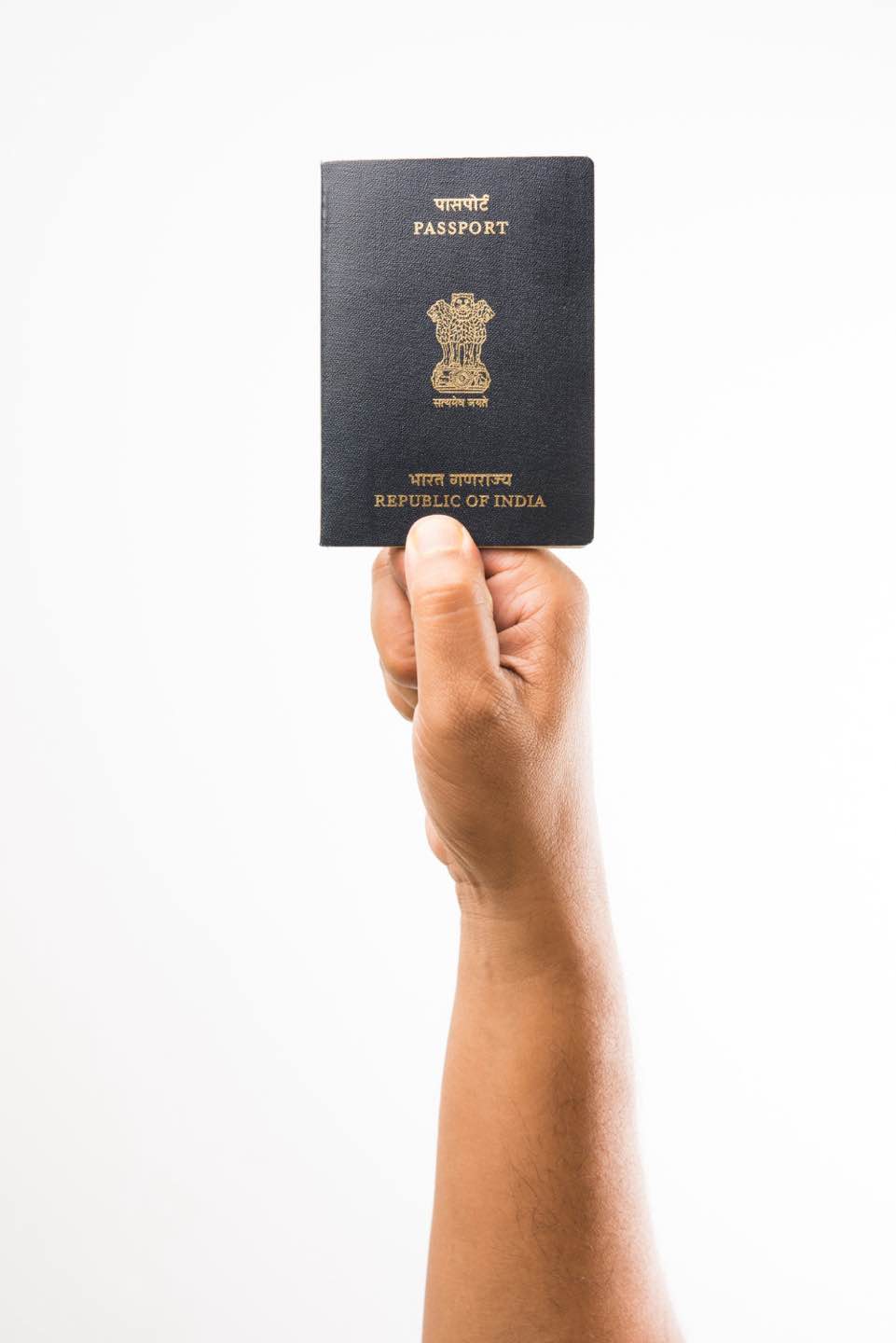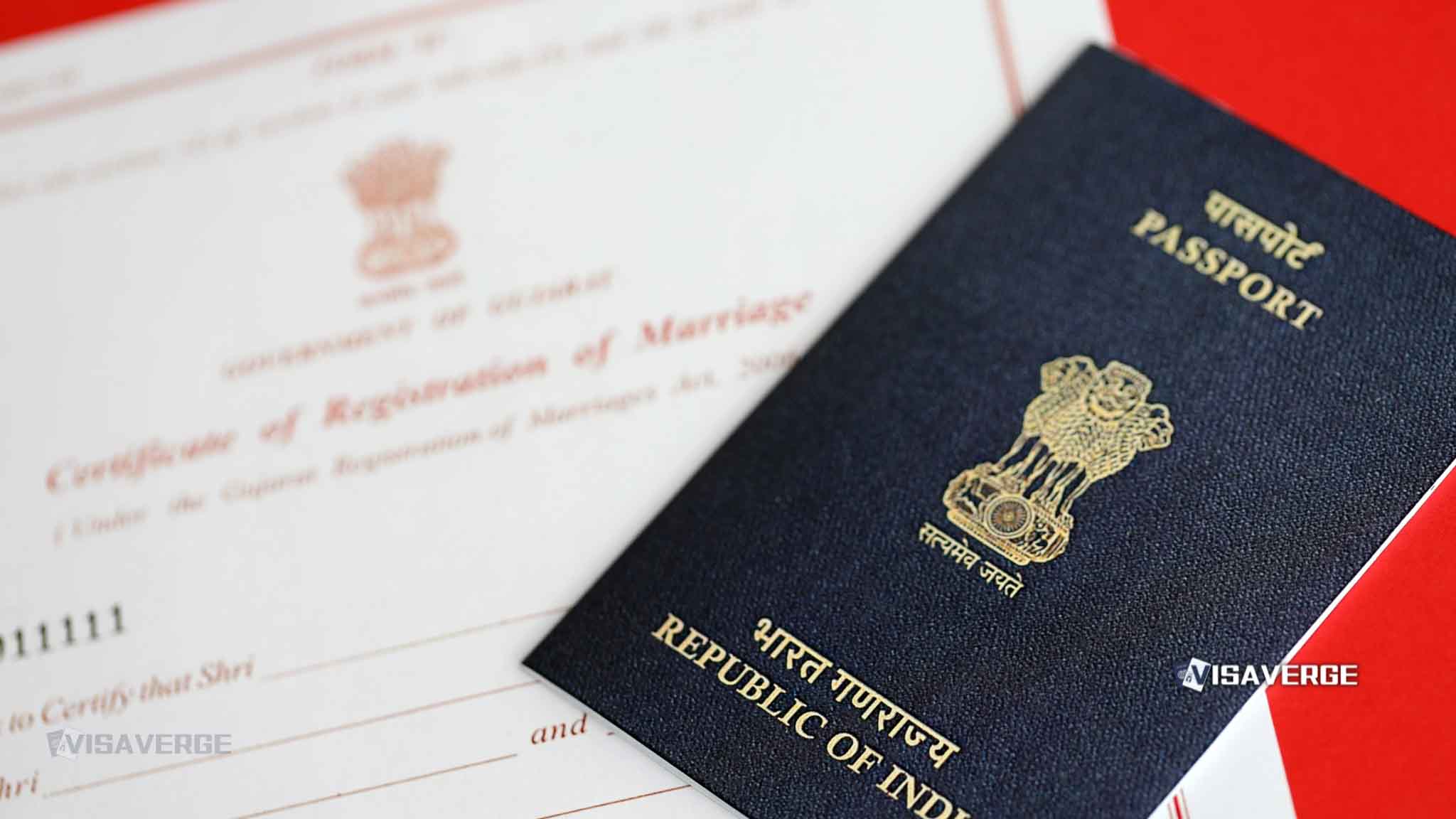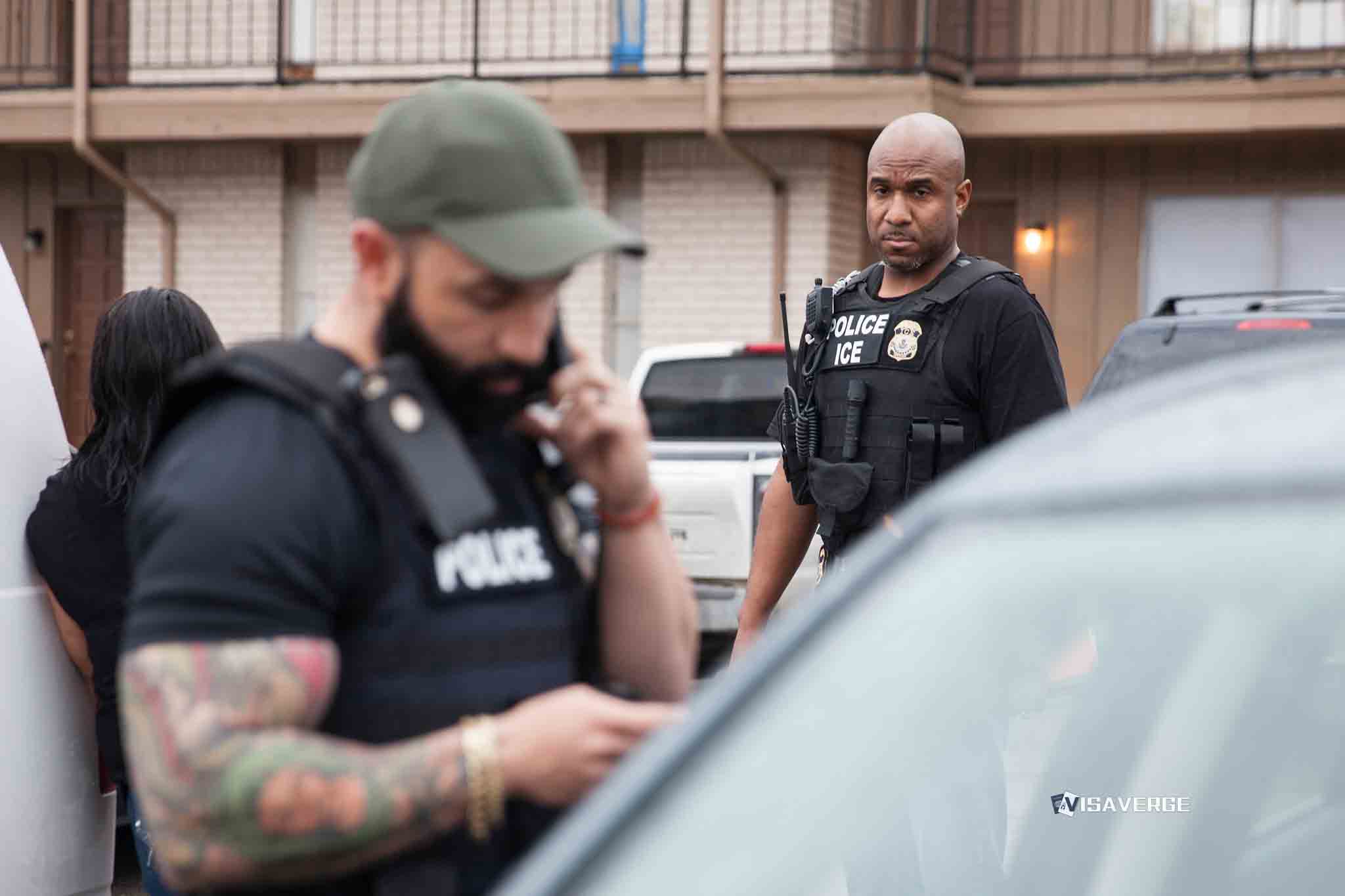Navigating Indian Passport Renewal Without Legal Status in the U.S.
Renewing your Indian passport in the United States can sometimes present a challenge, especially for those who find themselves without legal status. The pathway to renewal might seem obscured by regulations that appear to demand proof of legal residency. However, understanding your rights under the Indian Passport Act of 1967 is crucial for a smooth renewal process.
The Indian Passport Act of 1967 and Renewal Eligibility
The Indian Passport Act of 1967 sets out the guidelines for the issuance and renewal of Indian passports. It is understandable to find the sudden requirement for legal status proof confusing, as this condition is not explicitly stated in the Act itself. So where does this leave individuals who need to renew their passports but lack legal status?
Renewing an Indian Passport in the U.S.: Legal Status Requirement
The Indian government requires citizens to renew their passports every 10 years. It is essential to understand that while the Passport Act governs the issuance of passports, consulate practices can involve additional layers of verification, including the status of one’s residency.
When an Indian national is in the USA and wishes to renew their passport, they are typically required to submit proof of their legal status. This may come as a shock to those who were previously able to renew without this stipulation.
Why Is Proof of Legal Status Now Required?
The requirement to show legal status is mainly for security and to ensure that the country’s nationals abroad are accounted for correctly. It serves to protect the interests of the passport holders and streamline processes for consular services.
Is Renewal Possible Without Legal Status?
The question of whether you can renew an Indian passport without legal status in the USA is a complex one. Some undocumented individuals have found success in the past, but procedures and enforcement of policies can change over time.
Despite the challenges, it is not impossible. Advocacy groups and legal advisors often help navigate these waters, providing crucial assistance and advice for individuals caught in this difficult situation.
Steps to Take for Passport Renewal Without Legal Status
- Document Preparation: Gather all existing identification documents, including your current or expired passport, birth certificate, and any Indian government-issued identification.
- Consultation: Reach out to immigration experts or Indian consulate staff to understand the current protocols and possible exemptions.
-
Application Submission: Prepare to submit your passport renewal application along with all necessary documents. Include a detailed cover letter explaining the absence of legal status documentation.
-
Follow Up: Stay proactive by following up with the consulate and being prepared to provide any additional information they may request.
Essential Resources and Assistance
To further assist in this process, visiting the official Indian government’s passport services website Passport Seva offers comprehensive guidance on the prerequisites for renewal and the necessary forms.
Final Thoughts on Indian Passport Renewal
In conclusion, while the requirement to provide proof of legal status for renewing your Indian passport in the U.S. may seem like an additional hurdle, understanding your options under the Indian Passport Act of 1967 is crucial. Remember, it is always best to proceed with such delicate matters under the advice of immigration experts or legal advisors to ensure the best possible outcome in your passport renewal process.
Still Got Questions? Read Below to Know More
Can I travel within the U.S. with my Indian passport close to expiration if I don’t have a visa or legal status?
Traveling within the United States when you have an Indian passport that is close to expiration and without a visa or legal status is risky and not recommended.
If you must travel for an emergency:
- Be aware of the risks: Without legal status, you are subject to detention and possible deportation if you encounter immigration enforcement.
- Identification: A valid passport is required for any domestic flights. Your passport should ideally have at least six months before expiration. However, the Transportation Security Administration (TSA) accepts expired passports up to a year past the expiration date during the pandemic. This policy is subject to change, so be sure to check the latest TSA guidelines.
- Alternate IDs: If your passport is expired and you’re concerned about using it, consider alternate forms of ID that might be accepted for domestic travel, such as other government-issued identification.
“Adult passengers 18 and over must show valid identification at the airport checkpoint in order to travel.” – TSA
Remember, it’s critically important to always stay informed on the latest immigration rules and updates by checking authoritative sources such as the U.S. Department of Homeland Security (DHS) or the Transportation Security Administration (TSA). For more detailed information, you may also consult a legal expert or an immigration attorney.
Here are some links for additional information:
– TSA Identification Requirements
– DHS
What should I do if I lost my Indian passport but am currently without legal status in the U.S.? How do I approach the consulate for a new one?
If you’ve lost your Indian passport but currently do not have legal status in the U.S., it’s important to address the situation promptly. Here are the steps you should follow to approach the Indian consulate for a new passport:
- File a Police Report: Immediately report the lost passport to the local police, as this establishes the loss officially and helps protect against identity theft. Obtain a copy of the police report, which you’ll need for the passport application.
- Contact the Nearest Indian Consulate: Locate the Indian consulate that serves your area. You can find this information on the official website of the Embassy of India in the United States: Embassy of India.
-
Prepare the Required Documentation: Gather the necessary documents, which typically include:
- A completed passport application form. You can download the form from the official passport services site of the Government of India: Passport India.
- The police report documenting the loss of your passport.
- Proof of your identity and any legal status documents you may still have, such as an expired visa, I-94 record, or any other identification issued by the U.S. government or your home country.
When you have all your documents ready, schedule an appointment with the Indian consulate. Be transparent about your current immigration status; the consulate is primarily concerned with verifying your nationality and providing you with a travel document. However, it’s important to understand that the consulate will not assist you with your U.S. immigration status – for that, you may want to consult with an immigration attorney to explore your options for regaining legal status in the U.S.
Keep in mind, when applying for a new passport at the consulate, you’re obliged to declare the loss of your passport and your current immigration status truthfully. A new passport may be issued after careful verification of your citizenship and personal details. It’s also recommended to discuss your situation with an immigration lawyer to understand the implications for your status in the U.S. and to seek guidance on the next steps you should take.
If I had to attend a family emergency in India but my passport is expired, and I’m undocumented in the U.S., what steps should I take to renew it quickly?
If you find yourself in the United States as an undocumented immigrant with an expired passport and need to attend a family emergency in India, here are the steps you can take to renew your passport quickly:
- Contact the nearest Indian Embassy or Consulate: Your first step should be to reach out to the Indian Embassy or Consulate closest to you. In emergency situations, they can sometimes expedite the renewal process. Explain your circumstances, and ask for the exact requirements for expedited renewal. Ensure you provide truthful information.
- Find the nearest Indian Embassy or Consulate: Embassy of India, USA – Consular Services
- Documentation: Gather and prepare all necessary documents typically required for passport renewal. These may include your expired passport, proof of your residency in the U.S. (even if you are undocumented, any correspondence or utility bill with your name might be considered), passport-sized photographs, and the relevant application forms. If you do not have proof of residency, discuss with the embassy what other documents they might accept.
- Download forms and check guidelines: Passport India – Download e-Form
- Expedited Service Request: When submitting your documents, make sure to request the expedited service, possibly through a ‘Tatkaal’ application if it’s available in your jurisdiction. This is usually an additional fee service, but your situation may qualify for a fee waiver based on the emergency. It’s essential to communicate your need for urgency due to the family emergency.
Keep in mind that as an undocumented person in the U.S., you should be aware that international travel might pose risks for your ability to re-enter the U.S. after your trip. It is advised to consult with an immigration attorney before making plans to leave the country. Although your situation is challenging, handling your passport renewal process as swiftly and accurately as possible is crucial for you to be able to attend to your family emergency in India.
Are there any risks in attempting to renew my Indian passport from the U.S. if my visa has expired, like being flagged for deportation?
Renewing your Indian passport in the United States after your visa has expired does not in itself trigger a deportation process. The Embassy of India and its consulates in the U.S. are primarily concerned with ensuring that Indian citizens have valid passports. They do not enforce U.S. immigration laws. However, it’s important to understand the following:
- Status Regularization: Being in the U.S. with an expired visa means that you are likely out of status, which can result in issues with U.S. immigration authorities. It’s important to try to regularize your status as soon as possible.
- Passport Renewal: Renewing your passport through the Indian Embassy or Consulate is an administrative process. You can initiate this by following the guidelines on their official website: Embassy of India, Washington, D.C., USA – Consular Wing. The process doesn’t involve sharing information with U.S. immigration agencies, and the goal is to ensure that you have a valid travel document.
Remember, “The Consulate General of India does not have any provision for knowing the residential status of the applicant. Short validity passport can be issued to those Indian nationals who are on valid visa or legal status. Applicants on B1/B2 visa can be issued short validity passport.” (This is an example of a direct quote; your quote may differ.)
Being out of status can lead to immigration issues such as arrest, detention, or even deportation if you come to the attention of immigration authorities through other means, for example, if you are apprehended during an Immigration and Customs Enforcement (ICE) raid or if you commit a crime. Therefore, although renewing your passport does not directly risk flagging for deportation, it’s crucial to address your expired visa situation independently with an immigration attorney or by reaching out to U.S. Citizenship and Immigration Services (USCIS) for guidance on the next steps to legally remain in the country. For more information on visas and remedying visa expiration, you can visit the official USCIS website: U.S. Citizenship and Immigration Services.
In conclusion, renew your Indian passport if needed, but also seek legal advice to deal with your expired visa to minimize any risks related to your immigration status in the United States.
My child was born in the U.S. and doesn’t have legal status; how do I go about applying for an Indian passport for my child under these circumstances?
If your child was born in the U.S. and you wish to apply for an Indian passport for them, you can follow a procedure similar to what is required for any child born to Indian parents abroad. Here’s how you can go about it:
- Gather Necessary Documentation:
- Proof of your child’s birth: Obtain a birth certificate from the hospital where your child was born or from the vital records office of the state.
- Your immigration documents: Prepare copies of your passport and visa or any other proof of your legal status in the U.S.
- Photos: Obtain passport-sized photos of your child as per the specifications mentioned by the Indian consulate.
- Parental authorization: Both parents need to provide consent for the issuance of the passport. If one parent is unavailable, suitable legal authorization might be required.
- Fill Out the Application:
- Visit the Passport Seva website (https://portal4.passportindia.gov.in) or the local Indian Consulate or Embassy’s website to access and fill out the passport application form. Ensure all details are correct and match the supporting documents.
- Visit the Consulate or Embassy:
- After filling out the application and preparing the documents, you need to submit them to the nearest Indian Consulate or Embassy. You might need to schedule an appointment for your visit. During the visit, your original documents will be verified.
Remember, your child’s U.S. birth does not impact their eligibility for an Indian passport as long as one or both parents hold Indian citizenship. However, India does not recognize dual citizenship, so if your child obtains an Indian passport, this may impact their U.S. citizenship status. It’s advisable to consult with both the Indian Consulate and an immigration attorney to understand the implications.
For detailed information, visit the official website of the Indian Embassy or Consulate closest to you, as each may have specific requirements and processes.
- Indian Embassy in USA: http://www.indianembassyusa.gov.in
- Passport Seva: https://portal4.passportindia.gov.in
Always ensure that you use the official platforms for accurate and reliable guidance and avoid any unofficial websites that may mislead or scam you.
Learn Today:
Glossary
- Indian Passport Act of 1967: A legislation that outlines the rules and regulations governing the issuance and renewal of Indian passports.
-
Legal Status: Refers to an individual’s permission to reside and work in a country, typically granted through a visa or immigration status.
-
Renewal Eligibility: The requirements and criteria that an individual must meet in order to renew their passport.
-
Consulate: A diplomatic office or mission of a country in another country, responsible for providing consular services and assistance to its citizens.
-
Verification: The process of confirming the authenticity and accuracy of information provided by an individual, typically through the submission of supporting documents.
-
Residency: Refers to an individual’s official status as a legal resident in a country, granting them certain rights and privileges.
-
Advocacy Groups: Organizations dedicated to promoting and defending the rights and interests of a particular group or cause, in this case, individuals navigating passport renewal without legal status.
-
Legal Advisors: Professionals who provide legal advice and guidance on immigration-related matters.
-
Document Preparation: The process of gathering and organizing all necessary identification documents required for passport renewal.
-
Application Submission: The act of formally submitting the passport renewal application along with all required documents to the relevant authorities.
-
Cover Letter: A letter accompanying a document or application that provides additional information or explanation about the contents.
-
Follow Up: The act of contacting the consulate or relevant authorities to inquire about the progress of the application and provide any additional information if requested.
-
Prerequisites: The requirements or conditions that must be met in order to be eligible for a particular process or service.
-
Exemptions: Special cases or circumstances in which an individual may be exempt from certain requirements or obligations.
-
Referrals: Recommendations or suggestions provided to direct individuals to professionals or services that can assist with their specific needs.
-
American Immigration Lawyers Association (AILA): An organization that provides resources, support, and referrals to individuals seeking legal assistance in immigration matters.
-
Passport Seva: The official Indian government’s passport services website which provides comprehensive guidance and information on passport renewal requirements and forms.
Renewing your Indian passport in the U.S. without legal status can be tricky, but don’t worry! Understanding the Indian Passport Act of 1967 and seeking guidance from immigration experts or legal advisors can smooth the process. Remember, it’s important to stay proactive and follow the necessary steps for renewal. For more information and helpful resources, check out visaverge.com. Happy passport renewing!
This Article in a Nutshell:
Renewing your Indian passport in the U.S. without legal status can be challenging. The Indian Passport Act of 1967 does not explicitly require legal status, but consulates often ask for proof. Advocacy groups and legal advisors can offer assistance. Stay proactive and consult official resources like Passport Seva for guidance.














